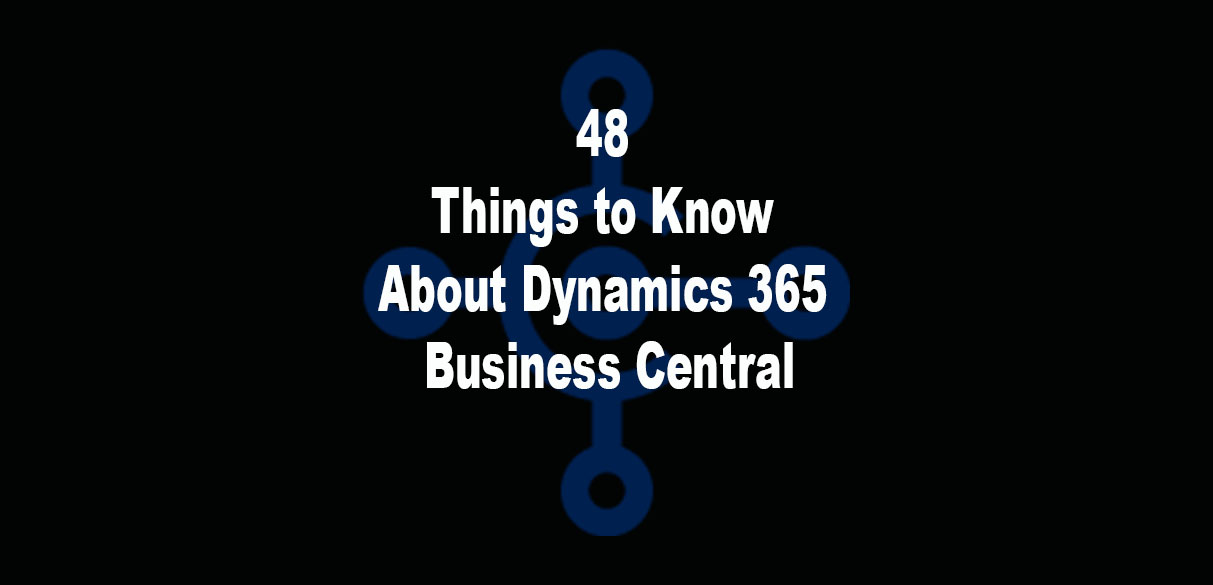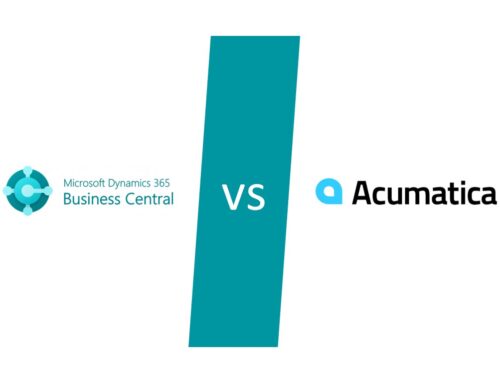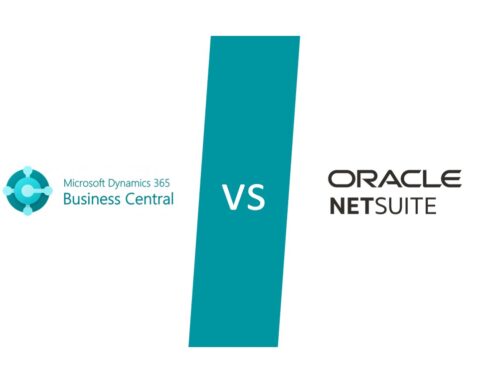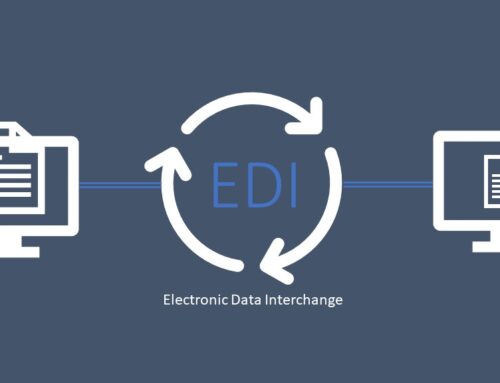
As you may know, there is a new version of Dynamics and it is based on NAV. Microsoft has been preparing for this release for a long time, and of course, they managed to confuse a lot of people with names, versions and just all around everything. I had a lot of questions, but nobody seemed to be able to answer all of them, so I decided to compile them into one easy to read and easy to understand article.
These answers come from multiple reliable sources – if you see anything that doesn’t look right, please let me know and I will clarify.
1 ) What modules are available in Business Central?
Dynamics 365 Business Central includes:
- Business Areas:
- financial management
- supply chain and inventory management
- sales and service management
- project and operations management
- Features include:
- reporting and analytics
- multi-currency
- multi-language
- multi-company
- data migration capabilities
2 ) Is Dynamics 365 Business Central available in the cloud? If so, can I buy directly from Microsoft?
No, Microsoft does not sell Dynamics 365 Business Central directly. It is only available from a Cloud Service Partner (CSP). Dynamics 365 Business Central is also available on-premise and is sold by a Value Added Reseller (VAR).
3 ) How does Dynamics 365 Business Central integrate with Microsoft products (Office 365, Power BI, PowerApps, Microsoft Flow)?
Microsoft is the only company that can deliver both the depth of first-party business solutions and fully integrated analytics and productivity at cloud scale. Delivering on this ability requires true SaaS business apps that directly integrate business processes.
For example, Office 365 productivity is infused into business processes, e.g. invoices surfaced directly in Outlook vs. opening accounts receivable. Power BI delivers powerful analytics and reporting. In addition, use Microsoft PowerApps for easy integration with external data sources and services.
4 ) Are there specific industries that are better suited for Dynamics 365 Business Central?
Dynamics 365 Business Central currently delivers primarily horizontal capabilities that serve a variety of industries. Reselling partners provide more specific business and industry extensions. Just visit Microsoft AppSource and you will find a wide variety of industry-specific extensions.
If you have industry-specific needs beyond Dynamics 365 Business Central and the extensions, work with a Dynamics 365 partner for more comprehensive industry and vertical capabilities. D365 partner can develop completely custom extensions for your business.
5 ) How easily can I get my existing data from the product we are using today into Dynamics 365 Business Central?
Depending on the finance solution that your business uses today, you can
- transfer information about customers, vendors, inventory, and bank accounts.
- start an assisted setup guide that helps you transfer the business data.
- easily upload files using extensions
- Example: Intuit Interchange Format (IIF) file to transfer QuickBooks data,
- or directly import from Excel.
6 ) What is the difference between Microsoft Dynamics 365 Business Central and Microsoft Dynamics NAV?
Dynamics 365 Business Central is the new version of Finance and Operations, Business edition application and includes full NAV capabilities, ranging from financial and operations management to sales and service.Dynamics 365 Business Central is the next version of NAV. It is an application which can be delivered through the cloud or on-premises.
Earlier versions of Dynamics NAV can also be deployed in the cloud or on-premises.
I wouldn’t suggest running some versions on the cloud, and that is a completely different discussion for another day.
7 ) How much does Dynamics 365 Business Central cost?
The suggested retail price for Dynamics 365 Business Central app is at $70 per user per month with no user minimums.
For businesses that have roles that don’t need full user access, team member licenses are available for $8 per month. Contact your trusted partner for more details.
8 ) What is Dynamics 365 Business Central?
- An online service provided by Microsoft – sold via CSP (Cloud Solution Provider Program) by Microsoft partners on Microsoft Azure.
- An all-in-one business management solution (also known as ERP System) that helps organizations connect their financials, operations, sales, and service.
Business Central brings the product maturity and full power of Dynamics NAV in the cloud, with capabilities spanning financial management, supply chain and inventory management, sales and service management, project management, and operations management. It also offers multi-company, multi-currency and advanced reporting capabilities.
There is another answer to this question. Because D365 can also be deployed on-premises, you can have your own server regardless whether it is in your own server room, in Azure or in AWS – call it your own private cloud, it is a matter of perception whether you call it on-premise or SaaS.
9 ) How does Dynamics 365 Business Central benefit you?
Remember, D365 is a new version of NAV. How did new versions benefit you before? If you operated your business on several versions of NAV or used NAV in different business, no doubt you can say that new versions are better. This is true with anything, take Excel for instance, new versions include more functionality, and I could go on and on.
Bottom line is that new versions keep getting better. According to Microsoft, Dynamics 365 takes a new approach to business applications. It brings together the best of CRM and ERP offerings into one cloud service with specific, purpose built, apps for each of your key business processes.
Dynamics 365 provides customers with a modern and familiar experience with built-in insights, intelligence, and workflow. Customers also use a common data model and consistent application platform to ensure consistency, interoperability, and extensibility.
Learn more at https://dynamics.microsoft.com/enus/marketing/overview/
If you have never used NAV and this is your 1
st time purchasing an ERP for your business, it is worth mentioning that Business Central is not some new solution on the market that is yet to be proven. It has been preceded by many versions of NAV. It is the
next version –
not a new product. The fact is that there are many new ERPs out there; too many to list here. Your business may not want to be among the first ones to implement a new solution. D365 is time proven, and it is possible only because of the previous versions of NAV.
10) What type of customer is Dynamics 365 Business Central meant for?
Dynamics 365 Business Central is targeted towards a wide variety of customers within multiple industries. Your trusted partner will know which extensions will suit your business.
For instance, if you are operating a warehouse and need a way to quickly move merchandise about the warehouse using mobile devices – there is an extension for that. Say that you need to accept credit cards – there is an extension for that.
Or maybe you have a retail store, or a restaurant – there is an extension for that too. And if there is no extension, talk to your trusted partner and they will build one for you.
Here is an example – our customer needed a specific functionality to collect electronic signatures (won’t go into much detail), we couldn’t find an extension that would be a good fit so we made one.
11 )How does Dynamics 365 Business Central relate to Microsoft Dynamics 365?
The official answer is: Microsoft Dynamics 365 Business Central is an application in the Dynamics 365 family of products.
For those who need a better answer: Take Office365 for example. It includes Word, Excel, PowerPoint, and much more depending on your needs. Each, a separate application. Well, Dynamics 365 is just like Office 365 with multiple application offerings.
12 )How does Dynamics 365 Business Central relate to Dynamics 365 “Tenerife”?
Dynamics 365 Business Central was previously code-named Project “Tenerife” and was in public preview since January 2018. And since we’re talking about relations, D365 Business Central is related to all Dynamics NAV versions.
13 )When and where will Dynamics 365 Business Central be available?
Dynamics 365 Business Central is generally available in 14 countries – United States, Canada, United Kingdom, Denmark, Netherlands, Germany, Spain, Italy, France, Austria, Switzerland, Belgium, Sweden, Finland – since April 2nd, 2018. Australia and New Zealand joined since July 1, 2018. This list is surely outdated by now. The success is spreading all over the world!
14) How can customers buy Dynamics 365 Business Central?
There are 2 ways to purchase Dynamics 365 Business Central
- via partners who participate in the Cloud Solution Provider (CSP) program by purchasing a subscription
- or Value Added Resellers (VARs) by either purchasing a subscription or a perpetual license.
15) With this new SaaS offering (Business Central) will Microsoft eventually start selling directly to customers?
Currently, Microsoft has no plans to sell Dynamics 365 Business Central directly to customers. The only way to purchase Dynamics 365 Business Central is via partners who participate in the Cloud Solution Provider (CSP) Program and VARs.
Microsoft will continue to rely on their network of global partners to use their expertise to help customers create and deploy a solution that meets their industry-specific needs. Visit https://aka.ms/csp to learn more.
16 ) Are there plans to unify localizations in a single code base?
The official answer from Microsoft: “Beginning July 2018 we will advise on the additional countries served by a non-localized version of Dynamics 365 Business Central. We will also provide additional information on our roadmap for other countries that will receive a localized version from Microsoft. We are however constantly optimizing our world-wide version (W1) with functionality relevant for several countries and hence reducing the individual country localization effort.”
What this means is that not much is going to change. NAV had this same architecture for years, and Business Central is following the same exact path.
17) Who is the audience for Dynamics 365 Business Central?
Dynamics 365 Business Central is designed for growing businesses that have outgrown their entry-level accounting solutions or legacy ERP systems. These companies typically need more robust capabilities than the financial and accounting packages they started with but are not yet ready to make a significant investment in highly customized ERP systems.
18) What are the capabilities of Dynamics 365 Business Central?
Dynamics 365 Business Central capabilities Please see more details at the Dynamics 365 Business Central website today.
19) What is the difference between Dynamics NAV and Dynamics 365 Business Central?
Dynamics NAV is software, available via perpetual, subscription, and/or SPLA licensing, that can be deployed on-premises or in the cloud and extended using Dynamics NAV customizations or extensions.
Dynamics 365 Business Central is the new version of NAV, it is available as an online service from Microsoft, and also available as a “server version” which can be deployed in a private cloud or on-premises. Both share the same capabilities and can be extended via apps (validated extensions) in Microsoft AppSource.
Bottom line is you choose between: hosted by Microsoft or host yourself.
20) How will Dynamics 365 for Sales and Business Central work together?
With Business Central, customers can process orders and finances and have seamless integration in the lead-to-cash process. When an application is set up to integrate with Dynamics 365 for Sales, the Sales data from Business Central is accessible and vice versa in some cases. This integration allows for working with and synchronizing data types that are common to both services, such as customers, contacts, and sales information, and keep the data up to date in both locations.
For example, a salesperson in Dynamics 365 for Sales can use the price lists from Business Central when creating a sales order. When an item is added to the sales order line in Dynamics 365 for Sales, this item is available also to see on the inventory level (availability) of the item from Business Central.
Conversely, order processors in Business Central can handle the special characteristics of sales orders transferred automatically or manually from Dynamics 365 for Sales, such as automatically create and post valid sales order lines for items or resources that were entered in Sales as write-in products.
21) Which Dynamics NAV functionality is/isn’t included in Dynamics 365 Business Central?
All of the capabilities available in Dynamics NAV will also be available in Dynamics 365 Business Central. However, Dynamics 365 Business Central customers will receive service updates automatically as they become available (approximately one update/month). Customers on Dynamics NAV will have to follow the cadence of the Dynamics NAV releases.
In other words, when Business Central is hosted by Microsoft, updates will be applied automatically, vs. when you host yourself – you decide when to upgrade.
Several benefits can be discussed when you decide to control your updates. For instance, you may not want to touch your system in the middle of busy season, when your business depends on your software. This is especially true when you have custom extensions or even extensions from AppSource.
You may want to do your due diligence and test the solution before rolling it into production. Several examples exist when solutions don’t jive with extensions and cause issues, again this is a discussion for another day, maybe I will post something to elaborate on this later.
22) Does Dynamics 365 Business Central include payroll?
Dynamics 365 Business Central does not include native payroll capabilities, however, customers can continue using their payroll solution of choice and integrate with the payroll solution by leveraging apps available in Microsoft AppSource.
If you need payroll functionality, reach out to your trusted partner. I find that more often than not payroll is outsourced, and there is a simple import/export operation handled with an extension. Often this extension is re-used from previous NAV implementations since BC shares common code and objects.
23) How will customers upgrade to new versions of Dynamics 365 Business Central?
Dynamics 365 Business Central customers will receive service updates automatically (approximately one update/month). Some customers may enjoy these rather frequent updates, after all, Microsoft is working hard to make sure that all the customers are running smooth. But it may not be good for others who don’t enjoy frequent changes.
Imagine that your ERP changes functionality just like Facebook or Twitter adds new features. Can be annoying to find out one morning that the finance department has to learn a whole new different workflow. On the other hand, small businesses may enjoy some new feature they have been dreaming of.
Many solutions work this way, and customers don’t mind – for instance, we use Atlassian JIRA for project management in this model, and updates do come every month, we just have to get used to them.
24) Where can partners see what features have recently been released and which features are coming soon?
Dynamics 365 Business Central roadmap page is available to keep track of previously released, newly available and upcoming features. Notice that the question says “Partners”, no mention of customers here yet. This may change, but for now, customers will need to rely on partners to know what is coming next.
25)Is Dynamics 365 Business Central a true SaaS/public cloud/multitenant offering managed by Microsoft?
Yes. It’s a full online service managed by Microsoft on Microsoft Azure. The price per user includes all costs associated with running the software. It includes SQL, Azure consumption, backup/restore, availability according to the SLA, upgrades etc. It also accommodates for customizations not only in the form of ISV solutions that can be found on AppSource.microsoft.com but also customizations made per customer or tenant.
True cloud, true maximum uptime with all kinds of failover and backups. Imagine running your system on 12+ servers across the country. Sure, you can do it in your private cloud if your business demands it, this is why both options are being offered. Reality is that many solutions are offered this way, already mentioned the project management tool, office 365 is even offered that way – word online (hosted by Microsoft) and word installed on your computer (hosted by you).
26) Is Dynamics 365 Business Central available on mobile devices?
Yes, Dynamics 365 Business Central mobile app is available in various mobile app stores. This is not new, NAV has been available for mobile devices for a while now. As I said earlier, Microsoft has been prepping for this long time ago.
27) Is Dynamics 365 Business Central built on Microsoft Dynamics NAV/GP/SL?
Microsoft Dynamics 365 Business Central is the latest offering from the Microsoft Dynamics family of products that are based on the Microsoft Dynamics NAV platform as well as several other Microsoft technologies, including Microsoft Dynamics GP best practices.
It is based on NAV – no question. GP and SL customers will eventually transition to Business Central, however, it is offered. Take it as an upgrade or transition, GP and SL will see their future in Business Central. I suppose that the best features of each will be taken into consideration and will end up in one of those monthly updates.
28) Will customers buy Dynamics 365 Business Central directly from Microsoft?
No, Business Central is sold by partners.
29) Is a Dynamics 365 Business Central trial available, and how long is the trial?
Yes. Prospects can sign up for a free trial from the Dynamics 365 Business Central landing page or here. Prospects who sign up for the trial can use the demo company (with demo data) for as long as they’d like. However, if the prospect chooses to set up a new company within the trial tenant (for example, to view their own data in the system), they will have access to the new company data for 30 days. They will be able to continue to use the demo company (with demo data) for as long as they’d like (no expiration).
The trial will set you on a path where the solution is hosted by Microsoft.
30) What happens to Dynamics 365 Business Central prospects who sign up for a Microsoft-led trial?
Prospects who initiate a trial will begin their experience with the “Let’s get started” wizard, including introduction videos and an option to explore different role centers. User will also be notified to import their own company own data. During the trial, users will receive in-trial nurture touches and will be encouraged to reach out to Microsoft telesales for pre-sales assistance and/or to connect with a CSP partner.
31) Does a customer need to have an Office 365 subscription to use Dynamics 365 Business Central?
No. However, to seamlessly experience Dynamics 365 Business Central from within Office 365, customers must have an Office 365 subscription that includes Exchange Online. Office 365 compliments Dynamics 365, it makes sense to have both, but not required. You may actually want to have office 365 subscription.
32) Will the on-premise support change for Dynamics NAV
No. The support on Dynamics NAV continues as is today. Remember that Business Central is effectively a new version of NAV.
33) GDPR – when can we get more details?
To learn more about GDPR, please review the information at the Dynamics 365 GDPR documentation. You can also reference new features for Dynamics 365 Business Central on the roadmap and blog pages.
34) What’s the difference between the opportunity management capabilities in Dynamics 365 Business Central and the CRM capabilities in Dynamics 365 for Sales?
The opportunity management capabilities in Business Central focus on sales transactions in the quote to cash process including quotes, orders, and invoices. Microsoft Dynamics 365 for Sales offers much richer marketing, opportunity management, and sales forecasting capabilities.
Additional details about the versions of Dynamics 365 for Sales, Dynamics 365 for Marketing, and Dynamics 365 for Customer Service will be posted in the next articles.
35) What SLA does Dynamics 365 Business Central have?
There is no definitive answer to this question. We will update this blog when it becomes available.
36) Where can partners and customers find Dynamics 365 Business Central Product Help documentation?
Dynamics 365 Business Central Product Help documentation can be accessed in a variety of ways. For example, users can click a field label to get a tooltip explaining the purpose of the field, from within Dynamics 365 Business Central. If there is more information available, then “Learn more” will be displayed in the tooltip to get more information. Additionally, Help will be displayed on the Dynamics Business Central website.
Microsoft has a lot of help available – MSDN is one of these tools. Anyone interested in getting help should search MSDN first.
37) Is it possible for partners to get access to the Dynamics 365 Business Central Help videos?
Yes. Please refer to the following website at aka.ms/readytogoonlinelearning.
38) How do customers get support for Dynamics 365 Business Central?
When Dynamics 365 Business Central is acquired through a CSP partner, CSP partners are responsible for providing end-customer support. However, CSP partners can use Microsoft support to address undocumented questions or service issues. When BC is deployed in a private cloud or on-premise, your VAR is your 1st level support. In both options, you are free to utilize your knowledgeable staff to support the solution.
39) Who can install/uninstall Dynamics 365 Business Central apps from Microsoft AppSource
When using the Dynamics 365 Business Central trial, any user who is an admin or a delegated admin (customer/partner) can install an extension at any time (regardless of the license state).
40) What is the Common Data Service (CDS)?
The Common Data Service (CDS) is a capability available through PowerApps, a cloud-resident business database, built on years of experience with our Microsoft customers. It will come with a large set of standard business entities spanning both business process (Dynamics 365) and productivity (Office 365). The standardization and consistency of schema enables partners and customers to build innovative applications and to automate business processes spanning the entire business process spectrum with confidence their solutions can be easily deployed and used across Microsoft’s entire customer base.
41) Will the Common Data Service (CDS) be available for Dynamics 365 Business Central? If so, when?
Yes. However, timing on when this is available has not yet been released.
42) Where can product feedback be submitted?
Partners and customers can submit product feedback, via
- https://experience.dynamics.com/ideas/
- https://community.dynamics.com/business/f/758
Partners can also submit feedback via Collaborate. (Please reach out to dyn365bep@microsoft.com if you don’t have access to Collaborate)
43) How do I find out more information about Dynamics 365 Business Central Pricing and Licensing related questions?
If you are ready to buy, contact your partner, they will have the most up to date information.
44) Will Dynamics 365 Business Central be available on-premises?
Yes. Dynamics 365 Business Central will continue support for NAV 2018 on-premise capabilities and now also supported as a SaaS cloud service.
45) Is Office 365 included in Dynamics 365?
No. Office 365 is not included nor required. However, to seamlessly experience Dynamics 365 Business Central from within Office 365, customers must have an Office 365 subscription that includes Exchange Online.
46) When are Trials available for Dynamics 365 Business Central?
Trials have been available since April 2nd, 2018.
47) How do I convert from a trial to a paid subscription? Will it require data migration?
Converting a Dynamics 365 Business Central trial customer to a paid subscription will not require a data migration.
48) How do Trials behave with CSP and connecting with the Dynamics 365 Business Central product SKUs?
The trial offer will provision subscription on *existing* SP of choice. From the product (application perspective) it will look like you signed up for a paid Premium service plan (if we choose Premium). But in 30 days, unless the customer purchases another (non-trial) offer, the subscription will be deprecated and removed.
“Trial CSP Offer Premium” and “Paid CSP Offer Premium” are pointing to the same SKU and the same SP
 As you may know, there is a new version of Dynamics and it is based on NAV. Microsoft has been preparing for this release for a long time, and of course, they managed to confuse a lot of people with names, versions and just all around everything. I had a lot of questions, but nobody seemed to be able to answer all of them, so I decided to compile them into one easy to read and easy to understand article.
As you may know, there is a new version of Dynamics and it is based on NAV. Microsoft has been preparing for this release for a long time, and of course, they managed to confuse a lot of people with names, versions and just all around everything. I had a lot of questions, but nobody seemed to be able to answer all of them, so I decided to compile them into one easy to read and easy to understand article.






Leave A Comment